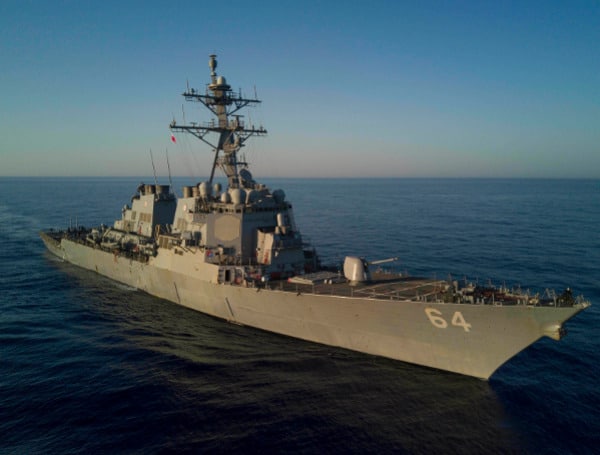The Red Sea has become a hotspot for escalating maritime attacks in the Middle East, with the targeting of an American warship and multiple commercial vessels.
This incident potentially marks a major escalation in the ongoing conflict between Israel and Hamas. In this article, we will delve into the details of the attacks, the parties involved, and the implications for regional stability.
On Sunday, an attack on the USS Carney, an Arleigh Burke-class destroyer, and several commercial vessels in the Red Sea sent shockwaves through the international community. The Pentagon confirmed the incident and stated that they would provide further information as it becomes available. The exact source of the attack remains unidentified.
Read: Biden Admin Could Raise Food Prices, Wreak Environmental Havoc With ‘Sustainable’ Jet Fuel Subsidies
“We’re aware of reports regarding attacks on the USS Carney and commercial vessels in the Red Sea and will provide information as it becomes available,” the Pentagon told The Associated Press.
The British military reported a suspected drone attack and explosions in the Red Sea, adding to the intensity of the situation. However, specific details regarding the nature and extent of the attack were not provided. The incident highlights the growing threat posed by unmanned aerial vehicles in maritime conflicts.
Yemen’s Iran-backed Houthi rebels have been actively involved in launching attacks on vessels in the Red Sea. Additionally, they have been targeting Israel with drones and missiles as part of their conflict with Hamas in the Gaza Strip. While the Pentagon did not directly attribute the attack to the Houthis, their history of maritime aggression raises suspicions.
The Red Sea conflict has witnessed a series of attacks on various targets. In November, the Houthis seized a vehicle transport ship connected to Israel near the port city of Hodeida, further escalating tensions. There have also been instances of missiles landing near U.S. warships after they assisted vessels linked to Israel. These continuous attacks raise concerns about the safety of global shipping in the region.
The Red Sea conflict has increasingly targeted global shipping, posing a significant threat to maritime trade. As the Israel-Hamas war threatens to expand into a wider regional conflict, the vulnerability of commercial vessels has become a pressing concern. The international community must take decisive action to protect shipping lanes and ensure the free flow of goods.
Read: Vivek Ramaswamy Says One Key Issue Could Make Him ‘A Major Surprise’ In Iowa Caucus
Despite a truce that temporarily halted fighting between Israel and Hamas, the maritime conflict in the Red Sea continues to escalate. Hostage exchanges between Hamas and Israel, where Palestinian prisoners are released in return for hostages held by Israel, have added complexity to the situation. The ongoing conflicts between various factions further increase the risk of maritime attacks.
The Houthis’ seizure of a vehicle transport ship linked to Israel near Hodeida highlights their determination to disrupt maritime operations. This act of aggression demonstrates their ability to target vessels and poses a significant risk to regional stability. The international community must address the root causes of the conflict and work towards a lasting solution.
In a recent incident, missiles landed near a U.S. warship after it assisted a vessel connected to Israel that had been briefly seized by gunmen.
While the Houthis had refrained from directly targeting Americans for some time, this incident raises concerns about the safety of U.S. naval forces in the region. The situation calls for increased vigilance and measures to protect American assets.
In 2016, the U.S. retaliated against Houthi missile attacks on their Navy ships by launching Tomahawk cruise missiles. These strikes destroyed three coastal radar sites in Houthi-controlled territory.
Similar decisive actions may be required in response to the recent attacks.
Android Users, Click To Download The Free Press App And Never Miss A Story. Follow Us On Facebook and Twitter. Sign up for our free newsletter.
We can’t do this without your help; visit our GiveSendGo page and donate any dollar amount; every penny helps

